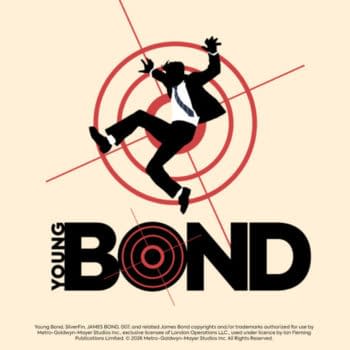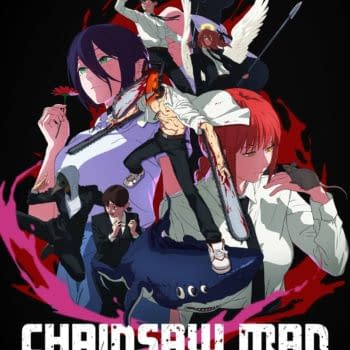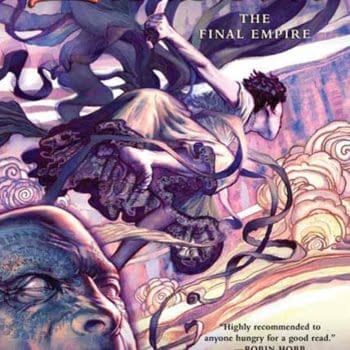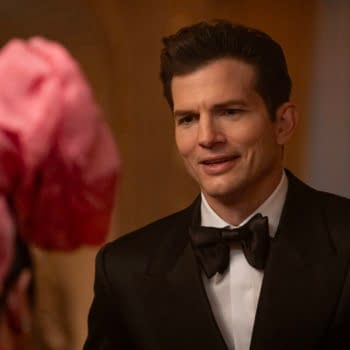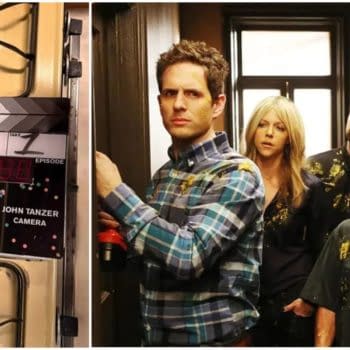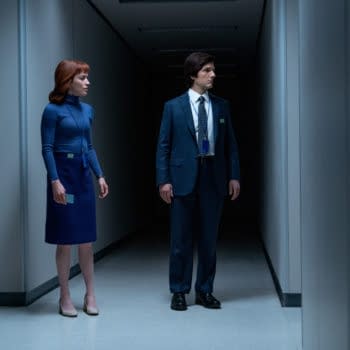Posted in: AMC, TV | Tagged: amc, better call saul, bob odenkirk, Rhea Seaborn, the sopranos
Better Call Saul If We Get a Sequel Because It's a Really Bad Idea
Better Call Saul is over. Fans are sad. Many fans would like it to go on, but how? There's actually a way. There are loads of ways, but are any of them a good idea? Fans want to see Jimmy (Bob Odenkirk) and Kim (Rhea Seaborn) again, not a spinoff featuring Francesca (Tina Parker), Jimmy/Saul's loyal receptionist and office manager.
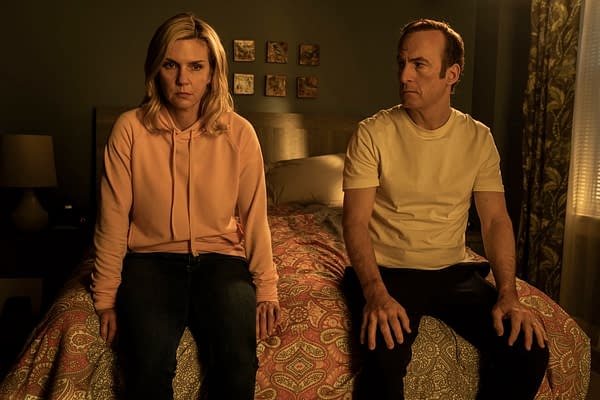
Imagine a New Better Call Saul! Or Shin Better Call Saul, as the Japanese would call it. Not a reboot, but a direct sequel! It takes place a few years later. Kim has managed to appeal Jimmy's sentence and get him out of prison. There are conditions to his parole, though. He has to wear an ankle bracelet and can never practice law again or get caught pulling any more scams. Instead, he's now on call to the cops, a squad of investigators chasing down con men, as a consultant. It takes a con man to catch another con man. With Kim as his legal counsel, Saul and Kim are back! THEY FIGHT CRIME! It's a network procedural, crime of the week, con of the week, just like you'd find on CBS!
Are you horrified yet? Do you feel a churning in your gut that this is wrong? You would be right. And you can bet that the showrunners and the writer's room talked about spinoffs and sequels as a reflex and maybe a joke even as they knew they wanted to end the story once and for all. Better Call Saul ended as it should because Jimmy and Kim's story was over. They both chose to make the right decision, the morally redemptive decision. They confessed their sins and let it all out in the light. Jimmy is facing the music and accepting punishment for his many crimes. Kim is back in his life and helping him face the future. It's the most hopeful ending that the story could end. It's actually the same ending as Dostoyevsky's Crime and Punishment – the protagonist could have gotten away with his crime but faces an empty life with his guilt, but in the end, confesses and accepts prison with hope in the form of love from a good woman.
Storytelling experts like screenwriting instructor Robert McKee have the term: "narrative exhaustion." It's where the story has run its course, and there are no new stories left to tell. The characters might still be alive, but they've completed their arcs and reached the end of their line, whether they had a happy ending or not. To try to continue, even in a series or serial, after they've reached this end. This is why it doesn't matter whether Tony Soprano was whacked in that diner after the screen blacked out. He was at the end of his story, whether he lived to get whacked at that point or The Sopranos went on a little longer. This is why it's best that we leave Jimmy and Kim hopeful at the end of Better Call Saul, imagining he might get released early or that they might be together again. The story ends and lets us fly with it.
Better Call Saul is on AMC.



